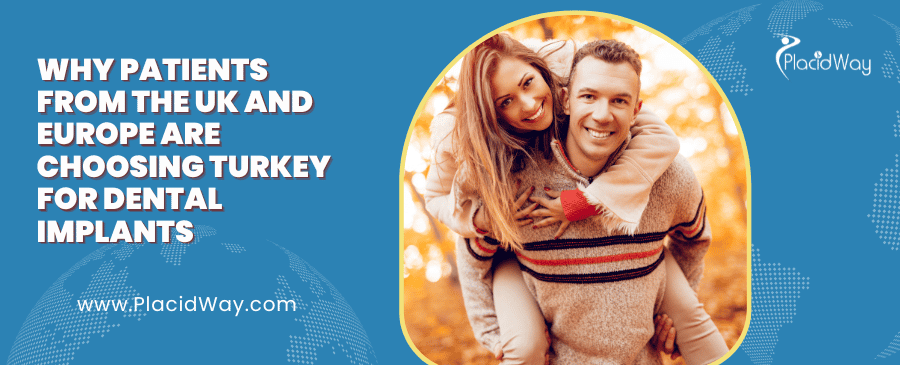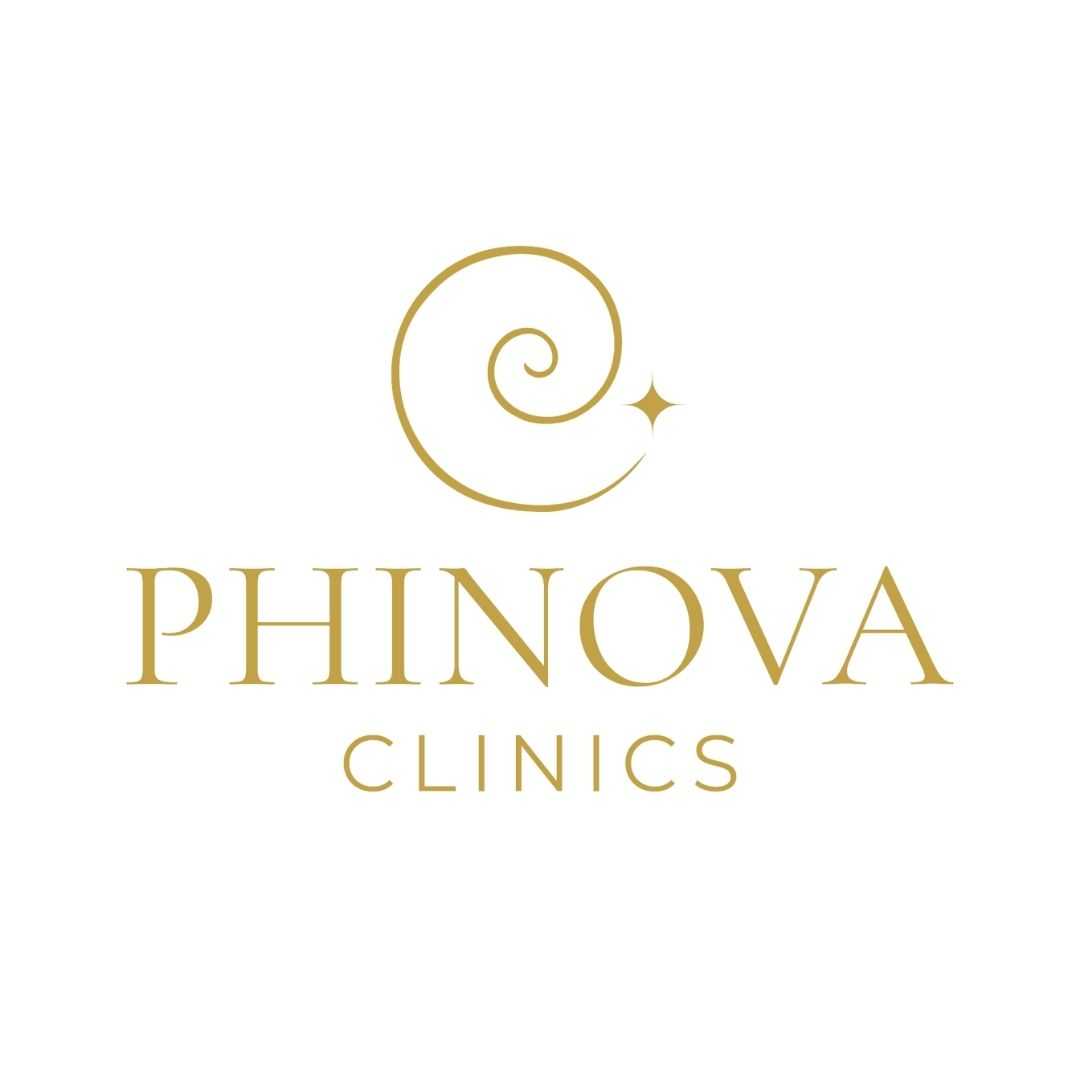
The pursuit of a perfect smile often comes with a hefty price tag in Western countries. This reality has led many individuals from the UK and Europe to explore more affordable yet equally high-quality alternatives abroad. Among the top destinations, Turkey has emerged as a leading hub for dental tourism, particularly for complex procedures like dental implants. This comprehensive guide delves into the compelling reasons behind Turkey's growing popularity, addressing common concerns and providing a complete overview for those considering this life-changing treatment.
Key Takeaways
- Patients from the UK and Europe can save 60-85% on dental implant costs in Turkey compared to their home countries.
- Turkish clinics offer state-of-the-art facilities, advanced technology, and highly skilled dentists, many with international training and accreditations.
- All-inclusive packages often cover the procedure, accommodation, airport transfers, diagnostic tests, and translation services.
- Single dental implants in Turkey typically range from £300 to £550, while in the UK, they can cost £1,500 to £3,500.
- Full mouth dental implants (All-on-4 or All-on-6) in Turkey range from £1,600 to £10,000, whereas in the UK, they can exceed £15,000 to £35,000.
The Allure of Affordability: Cost Savings Explained
The cost of dental implants in the UK and many European countries can be prohibitive, making comprehensive dental restoration out of reach for many. In contrast, Turkey offers a dramatic reduction in prices, often 70-80% cheaper than in the UK, Germany, the Netherlands, or France. This affordability stems from several economic factors:
- Lower Operating Costs: Rent, utilities, and labor costs for dental clinics in Turkey are considerably lower than in Western Europe.
- Favorable Exchange Rates: The Turkish Lira's exchange rate against currencies like GBP and EUR makes treatments significantly more affordable for international patients.
- Government Support for Health Tourism: The Turkish government actively supports and promotes medical tourism through various incentives, fostering a competitive market among clinics.
- High Competition: A large number of dental clinics vying for international patients leads to competitive pricing and attractive package deals.
These factors allow Turkish clinics to offer high-quality treatments using premium materials at a fraction of the price, making a full smile makeover an achievable dream for many.
Cost Comparison Table: Dental Implants in Turkey vs. UK/Europe
| Procedure Type | Average Cost in UK (GBP) | Average Cost in Turkey (GBP) | Estimated Savings (%) |
|---|---|---|---|
| Single Dental Implant | £1,500 - £3,500 | £300 - £550 | 70% - 85% |
| All-on-4 Dental Implants (per jaw) | £10,000 - £25,000 | £1,600 - £4,500 | 60% - 80% |
| Full Mouth Implants (All-on-6+) | £15,000 - £35,000+ | £4,000 - £10,000 | 65% - 85% |
| Dental Crowns (per tooth) | £600 - £1,200 (EUR) | £95 - £300 (EUR) | 65% - 85% |
| Dental Veneers (per tooth) | £800 - £1,500 (EUR) | £100 - £250 (EUR) | 70% - 80% |
Uncompromising Quality: Advanced Facilities and Expert Dentists
Many patients from the UK and Europe are initially concerned about the quality of care when considering treatment abroad. However, Turkey has invested heavily in its healthcare infrastructure, with many dental clinics meeting or exceeding international standards.
State-of-the-Art Technology
Leading Turkish dental clinics are equipped with advanced diagnostic tools and treatment technologies, including:
- 3D Imaging and CBCT Scans: For precise planning and placement of implants.
- Digital Smile Design Software: To visualize and plan the aesthetic outcome.
- CAD/CAM Technology: For in-house fabrication of crowns and bridges, ensuring precision and faster turnaround times.
- Laser Dentistry: For minimally invasive procedures and faster healing.
Did You Know?
Highly Skilled and Experienced Dentists
Turkish dentists specializing in implantology are often highly educated, with many having received international training and certifications from prestigious institutions in Europe and the USA. They are frequently members of international dental associations, staying abreast of the latest techniques and best practices.
- Specialized Expertise: Many clinics employ teams of specialists, including oral and maxillofacial surgeons, prosthodontists, and aesthetic dentists, ensuring comprehensive care for complex cases.
- International Patient Focus: Dentists and clinic staff are often multilingual, with English widely spoken, facilitating clear communication and a comfortable experience for international patients.
Expert Insight: "The expertise of Turkish implantologists, combined with their access to advanced technology, allows them to achieve success rates comparable to, if not higher than, many Western clinics. Patients often find the personalized attention and comprehensive care to be a significant advantage." - Leading Dental Tourism Consultant
Comprehensive Dental Implant Packages and What They Include
One of the most appealing aspects of choosing Turkey for dental implants is the availability of comprehensive packages. These all-inclusive dental deals are designed to provide a seamless experience for international patients, minimizing stress and hidden costs.
Typical inclusions in a dental implant package may feature:
- The Dental Procedure Itself: This covers the cost of the implant post (often from reputable brands like Straumann, Nobel Biocare, Hiossen, or Bego), the abutment, and the final crown (e.g., Zirconium, E-Max, or Porcelain).
- Initial Consultations and Diagnostic Tests: Upon arrival, patients undergo a thorough examination, including panoramic X-rays and often 3D/CT scans for precise treatment planning.
- Temporary Restorations: For multi-stage implant procedures, temporary crowns or dentures are usually provided to ensure comfort and aesthetics during the healing period.
- Medications: Post-procedure medications such as painkillers and antibiotics are typically included to aid recovery and prevent infection.
- Accommodation: Many packages include a stay in a comfortable hotel, often with breakfast included, for the duration of the treatment visits.
- Airport and Clinic Transfers: Seamless transportation between the airport, hotel, and clinic is a standard offering, providing convenience and peace of mind.
- Translation Services: Dedicated translators are often available to bridge any language barriers between the patient and the medical team.
- Follow-up Appointments: Initial post-operative check-ups before returning home are usually covered.
- Warranty: Reputable clinics offer warranties on the dental implants and restorations, providing assurance for long-term success.
Did You Know? Many clinics offer a "two-trip" model for dental implants: the first trip for implant placement (typically 6-7 days) and the second trip for final crown placement after osseointegration (3-6 months later, also 6-7 days).
The Dental Implant Procedure: A Step-by-Step Overview
The dental implant procedure in Turkey follows internationally recognized protocols, ensuring safety and efficacy. While individual treatment plans vary, the general steps include:
1. Initial Consultation and Assessment
This involves a detailed review of your oral health, medical history, and specific needs. Panoramic X-rays and 3D Cone Beam Computed Tomography (CBCT) scans are crucial for assessing bone density, nerve locations, and planning the precise placement of implants. The dentist will discuss the best implant options (e.g., single implant, All-on-4, All-on-6) and the overall treatment timeline.
2. Implant Placement Surgery
During this stage, the titanium implant post is surgically inserted into the jawbone at the site of the missing tooth. Local anesthesia ensures a painless experience, and some clinics offer sedation for anxious patients. After the implant is placed, the gum tissue is typically closed over it, and a healing period begins.
3. Osseointegration (Healing Period)
This is the most critical phase, where the titanium implant biologically integrates with the surrounding bone. This process, known as osseointegration, ensures the implant becomes a stable anchor for the future crown. During this time, patients typically wear temporary restorations.
4. Abutment Placement and Impression Taking
In the second visit to Turkey (or after the healing period if the patient is local), a small incision is made to expose the top of the implant. An abutment, which acts as a connector, is attached to the implant. Impressions of the abutment and surrounding teeth are then taken to create a custom-designed dental crown that matches the patient's natural teeth in shape, size, and color.
5. Final Crown Placement
The final, custom-made crown is then securely cemented or screwed onto the abutment. The dentist will ensure the bite is correct and the aesthetics are perfect, providing a natural-looking and fully functional replacement tooth.
Post-Procedure Care and Follow-up
The success and longevity of your dental implants heavily depend on diligent post-operative care and maintaining excellent oral hygiene. Turkish clinics provide comprehensive guidelines and support for their international patients.
Immediate Aftercare (First Few Days)
- Managing Discomfort: Mild pain and swelling are normal. Prescribed painkillers and cold compresses can help.
- Diet: Stick to soft or liquid foods for the first few days. Avoid hot, spicy, or hard foods that could irritate the surgical site.
- Oral Hygiene: Avoid rinsing, brushing, or spitting vigorously for the first 24 hours. After that, gentle brushing around the surgical area and using prescribed antibacterial mouthwash is crucial.
- Activity: Avoid strenuous exercise for at least 48 hours.
- Smoking and Alcohol: Crucially, avoid smoking and alcohol during the initial healing phase, as they can significantly hinder the healing process and increase the risk of complications.
Long-Term Care
- Regular Brushing and Flossing: Treat your implants like natural teeth. Brush twice daily with a soft-bristled toothbrush and use dental floss or interdental brushes to clean around the implants.
- Mouthwashes: Continue using any recommended mouthwashes to control bacteria.
- Regular Dental Check-ups: Even after returning home, regular check-ups with your local dentist are vital to monitor the health of your implants and surrounding tissues. If any issues arise, contact your Turkish clinic immediately.
- Healthy Diet: A balanced diet rich in vitamins and protein supports overall oral health and implant longevity.
- Avoid Hard Foods: While implants are strong, avoid biting down on extremely hard foods (e.g., nuts in shells, ice) that could damage the crown or implant.
Fact: With proper care, dental implants can last a lifetime, making them a durable and long-term solution for missing teeth.
Addressing Concerns: Safety, Accreditation, and Risks
The "Turkey Teeth" phenomenon has raised some concerns, particularly regarding aggressive cosmetic procedures. However, when it comes to dental implants, reputable clinics in Turkey prioritize patient safety and long-term success.
Safety and Accreditation
- Ministry of Health Accreditation: Reputable clinics should be accredited by the Turkish Ministry of Health for Medical Tourism, ensuring they are authorized and equipped to handle international patients.
- International Certifications: Look for clinics with international certifications like Joint Commission International (JCI) or ISO 9001:2015, which signify adherence to global standards of quality, safety, and ethical practice.
- Turkish Dental Association (TDB): Dentists should be licensed by the TDB, confirming their qualifications and adherence to professional standards.
- Hygiene Standards: Certified clinics follow strict sterilization and infection control protocols, utilizing modern equipment and practices.
Potential Risks and Considerations
While dental implant surgery is generally safe, like any medical procedure, it carries some potential risks:
- Infection: Although rare, infection at the implant site can occur. This is mitigated by strict hygiene protocols and prescribed antibiotics.
- Nerve Damage: In rare cases, nerve damage can lead to numbness, tingling, or pain. This risk is minimized by thorough pre-operative planning using 3D imaging.
- Sinus Issues: For upper jaw implants, there's a small risk of the implant protruding into the sinus cavity. This can often be avoided with a sinus lift procedure if needed.
- Implant Failure: While success rates are high (often over 95%), an implant may fail to integrate with the bone. This can be due to poor bone quality, smoking, or inadequate aftercare. Reputable clinics offer warranties to address such issues.
- Continuity of Care: One challenge can be follow-up care once you return home. It's important to discuss this with your Turkish clinic and your local dentist.
- Language Barriers: While many clinics offer translation services, ensure clear communication channels are established.
Recommendation: Thorough research is paramount. Read patient reviews, check clinic credentials, and ask detailed questions about the procedure, materials, aftercare, and warranty before making a decision.
Travel and Logistics: Making Your Journey Smooth
For patients from the UK and Europe, traveling to Turkey is relatively straightforward. Major cities like Istanbul, Antalya, and Izmir are well-connected with direct flights.
Planning Your Trip
- Visa Requirements: Check visa requirements for Turkey based on your nationality. For UK and most European citizens, e-visas are often available or no visa is required for short stays.
- Flight Bookings: Book flights in advance for better deals. Many clinics offer airport transfer services.
- Accommodation: If not included in your package, research and book hotels close to your chosen clinic.
- Travel Insurance: Consider comprehensive travel insurance that covers medical emergencies abroad.
- Currency: The local currency is the Turkish Lira (TRY), but Euros and GBP are often accepted in tourist areas and clinics.
During Your Stay
- Communication: Most reputable clinics have English-speaking staff and offer translation services.
- Exploring Turkey: Many patients combine their dental treatment with a holiday, enjoying Turkey's rich culture, historical sites, and beautiful landscapes. This adds significant value to the experience.
- Recovery Time: Factor in adequate recovery time before planning your return journey, especially after the implant placement surgery.
Frequently Asked Questions (FAQs)
How long does the entire dental implant process take in Turkey?
The entire dental implant process, from initial placement to final crown, typically takes 3 to 6 months, involving two visits to Turkey. The first visit for implant placement usually lasts 6-7 days, and the second visit for crown placement, after osseointegration, also takes 6-7 days.
Are the dental implant materials used in Turkey of good quality?
Yes, reputable dental clinics in Turkey use high-quality, internationally recognized dental implant brands such as Straumann, Nobel Biocare, Hiossen, and Bego, ensuring durability and long-term success comparable to those used in the UK and Europe.
What is the success rate of dental implants in Turkey?
The success rate for dental implants in reputable Turkish clinics is very high, often exceeding 95-99%, aligning with global standards. This is attributed to skilled professionals, advanced technology, and quality materials.
Can I get all my dental implants done in one trip to Turkey?
For single or multiple implants, the surgical placement is done in one trip. However, the final crowns are typically placed after a 3-6 month healing period (osseointegration), requiring a second trip to Turkey to ensure proper integration and stability.
What happens if there are complications after I return home?
Reputable Turkish clinics offer warranties on their dental implant procedures. In case of complications, they will typically cover the cost of corrective dental work. However, patients may need to cover their own travel and accommodation expenses for a return trip.
Is it safe to travel to Turkey for dental treatment?
Yes, it is generally safe to travel to Turkey for dental treatment, especially when choosing reputable clinics accredited by the Turkish Ministry of Health and adhering to international safety and hygiene standards. It's always advisable to research and choose a well-established clinic.
Do Turkish dentists speak English?
Many dental professionals and clinic staff in Turkey, especially those catering to international patients, are proficient in English. Additionally, many clinics provide dedicated translation services to ensure clear communication throughout your treatment journey.
Ready to Transform Your Smile?
Start your journey to a healthier, more confident smile with PlacidWay. We connect you with top-tier dental clinics in Turkey that offer high-quality, affordable dental implant solutions. Our network of accredited clinics ensures you receive world-class care, state-of-the-art technology, and comprehensive packages tailored to your needs.
Don't let high costs stand between you and your dream smile.
Contact PlacidWay today for a free consultation and personalized quote.
Discover how easy and affordable it can be to get your dental implants in Turkey, combining exceptional treatment with an unforgettable travel experience.







.png)
.png)
.png)




.png)


Share this listing